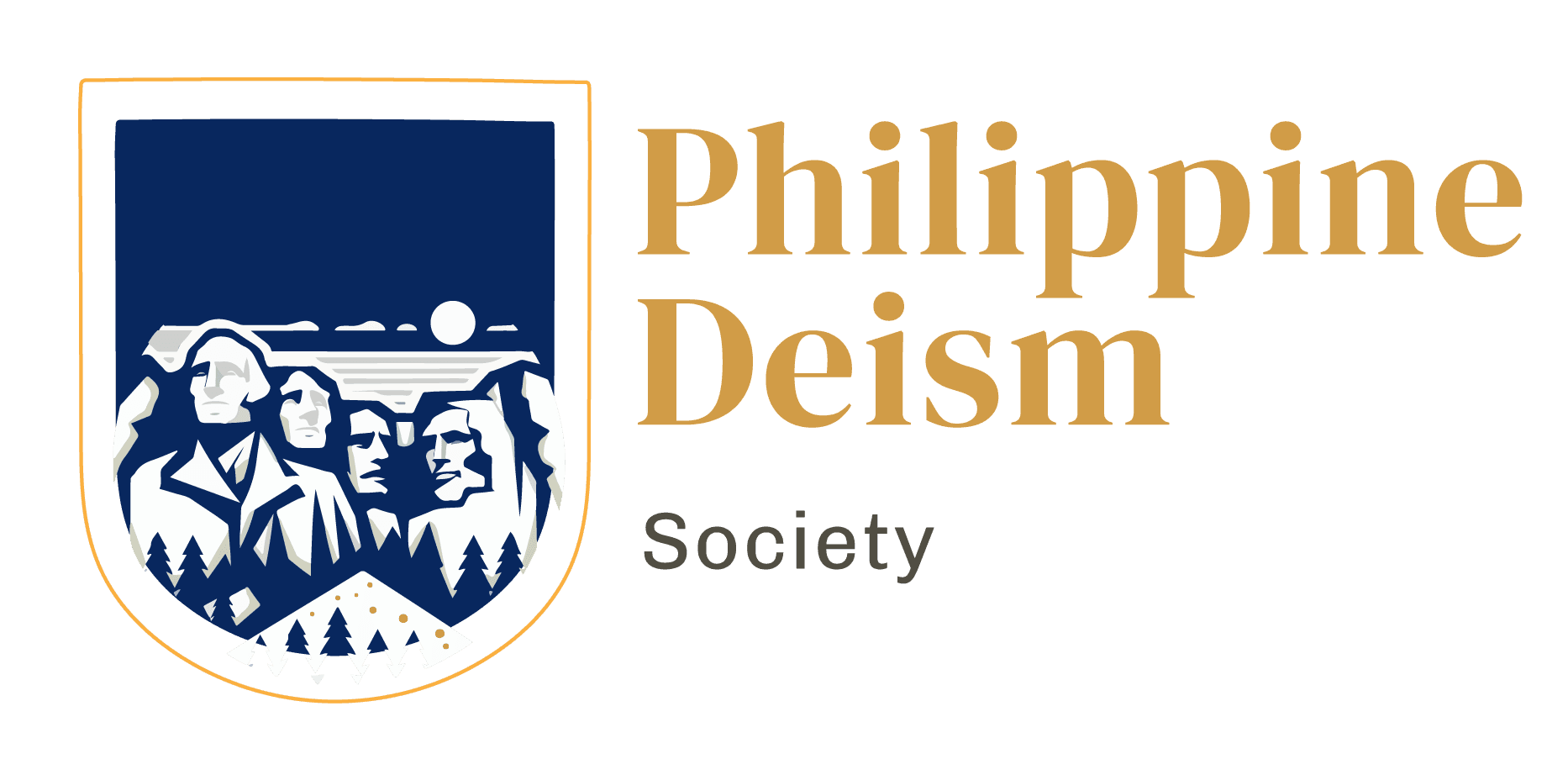THE PROBLEM OF EVIL
Is a Loving, All-Powerful God who rules the universe Compatible with the Presence of Evil?
One of the deepest and most enduring challenges to traditional Christianity is not scientific, historical, or even moral—it is philosophical. It is the question of evil. How can one reconcile the widespread suffering in the world with the belief in a God who is supposedly all-powerful, all-knowing, and all-loving?
This challenge has echoed through the centuries, from the ancient musings of many to modern philosophical inquiry. Known as the problem of evil, it remains one of the most compelling arguments against the classical Christian concept of God.
The Inconsistent Triad
The problem is often presented as a logical puzzle—a triad of three claims that cannot all be true at once:
> God is omnipotent (all-powerful): He can prevent all evil.
> God is omnibenevolent (all-loving): He desires to prevent all evil.
> Evil exists: Suffering, injustice, and cruelty are clearly present in the world.
If God is both willing and able to stop evil, why does it continue? To preserve belief in such a God, one must either redefine evil, compromise God’s nature, or suggest that our moral intuitions are somehow mistaken.
But should we?
The Limits of the Free Will Defense
One common Christian response is the free will defense—the idea that God allows evil because He gave humans free will, and genuine freedom means the ability to choose evil. But this explanation, while emotionally comforting to some, fails under scrutiny.
First, it does not address natural evil—earthquakes, tsunamis, pandemics, and congenital diseases—none of which result from human choices. If God created the laws of nature, He also bears responsibility for their deadly consequences. HOWEVER, such natural calamities are even perceived as judgements from God.
Second, free will does not necessitate the extent or extremity of suffering that exists. Why must the consequences of evil choices be so devastating? Could not a loving, all-powerful deity create a world where free choices do not lead to the brutal rape of a child or the starvation of millions?
To suggest otherwise is to imply that God is either not all-powerful (unable to design such a world) or not all-loving (unwilling to do so).
The “Greater Good” Escape and Its Moral Cost
Another response is that suffering serves a greater purpose—that pain builds character, tests faith, or leads to hidden blessings. Yet this reason raises ethical questions. Does any parent allow their child to suffer unspeakable agony in order to produce moral growth? And if such a parent existed, would we admire or frown on them?
Even if some suffering leads to growth, much of it appears without reason or basis, random, and destructive. What “greater good” is served by infants born with terminal conditions, or by entire species that lived and died in pain millions of years before humans ever appeared?
If God’s logic is so foreign to ours that what we call evil is actually good, then the word “good” loses all human meaning, and God becomes unknowable—even morally irrelevant.
When Mystery Becomes Evasion
Faced with these contradictions, many retreat to the final line of defense: “We cannot understand God’s ways.” This sounds humble, but it dissolves moral reasoning. If God’s goodness is beyond understanding, why call Him good at all?
Furthermore, if we abandon reason and ethics at the moment they challenge doctrine, then faith becomes blind, and religion ceases to guide—it only demands submission.
Beyond Rejection: A Call for Rethinking the Divine
The problem of evil does not mean the universe is without depth, mystery, or sacred value. But it does suggest that the traditional Christian portrait of a personal, all-powerful, all-loving God does not fit the world we actually live in.
If there is a divine reality, it may not resemble the comforting figure of ancient theology. Perhaps it is not a person at all, but rather a creative force, an evolving energy, or a moral ideal that we glimpse in conscience and nature.
Either way, we owe it to ourselves—and to the pursuit of truth—to ask hard questions, resist easy answers, and let reason illuminate the path once claimed by revelation.
Closing Thought
To doubt a God who allows suffering is not rebellion—it is moral integrity. And perhaps the truest reverence is not blind belief, but courageous honesty in the face of hard truths.
TAGALOG BERSION:
Maibigin Ba Talaga ang Diyos Kung May Matinding Pagdurusa sa Mundo?
Pagsusuri sa Presensia ng Kasamaan at Pagdurusa sa Buong Mundo
Isa sa pinakamalalim at pinakamatibay na hamon sa tradisyunal na pananampalatayang Kristiyano ay hindi basta usapin ng agham, kasaysayan, o moralidad. Isa itong pilosopikal na tanong—ang tanong tungkol sa kasamaan at pagdurusa sa mundo.
Paanong magkakaugnay ang paniniwala sa isang Diyos na makapangyarihan, maalam sa lahat, at maibigin sa lahat, kung kitang-kita naman sa buong daigdig ang matinding paghihirap, kawalan ng katarungan, at kasamaan?
Ang katanungang ito ay tumatagos sa bawat panahon—mula pa sa sinaunang pilosopo hanggang sa mga modernong palaisip. Tinatawag itong problema ng kasamaan (problem of evil), at nananatili itong isang makapangyarihang argumento laban sa tradisyonal na larawan ng Diyos sa Kristiyanismo.
Ang Tatlong Salungat na Paniniwala
Madalas itong ilahad bilang isang lohikal na problema—isang triad ng tatlong pahayag na hindi maaaring sabay-sabay na totoo:
- Makapangyarihan ang Diyos – kaya Niyang pigilan ang lahat ng kasamaan.
- Maibigin ang Diyos – ayaw Niya sa kasamaan at nais Niya itong alisin.
- May kasamaan sa mundo – laganap ang karahasan, kahirapan, at pagdurusa.
Kung parehong nais at kaya ng Diyos na pigilan ang kasamaan, bakit patuloy itong nararanasan? Upang panatilihin ang paniniwala sa ganitong Diyos, kailangang baguhin ang kahulugan ng “kasamaan,” bawasan ang kapangyarihan o kabutihan ng Diyos, o sabihing mali ang ating moral na pakiramdam.
Ngunit tama ba ito?
Hangganan ng Depensang “Malayang Kalooban” (Freewill)
Isa sa karaniwang sagot ng mga Kristiyano ay ang depensang malayang kalooban: na pinapayagan ng Diyos ang kasamaan dahil binigyan Niya tayo ng kalayaan upang pumili, at bahagi ng kalayaang ito ay ang kakayahang gumawa ng masama.
Ngunit hindi nito sinasagot ang tinatawag na natural na kasamaan—mga lindol, bagyo, pandemya, at sakit mula pagkabata—na hindi bunga ng maling pagpili ng tao. Kung nilikha ng Diyos ang mga batas ng kalikasan, may pananagutan Siya sa mga sakunang idinudulot nito.
Bukod dito, hindi nangangahulugan ang malayang kalooban ng labis at malupit na pagdurusa. Kailangan ba talagang maging resulta ng malayang pagpili ng isa ang brutal na panggagahasa sa bata o ang pagkamatay ng milyun-milyon sa gutom? Hindi ba maaaring lumikha ang isang maibigin at makapangyarihang Diyos ng mundong may kalayaan pero walang labis na kasamaan?
Kung hindi, alin sa dalawa ang totoo? Siya ba ay makapangyarihan o hindi? Siya ba ay talagang maibigin o hindi?
Ang “Mas Dakilang Layunin” (Higher purppose) at ang Moral na Dilemma
Isa pang sagot ay ang ideya ng mas dakilang layunin—na ang pagdurusa ay may silbi, gaya ng pagbubuo ng karakter, pagpapatatag ng pananampalataya, o paghahatid ng mga di-nakikitang pagpapala.
Ngunit moral ba ito? May magulang bang magpapahintulot na magdusa nang matindi ang kanilang anak upang siya’y “matuto”? At kung may ganitong magulang, huhusgahan ba natin siyang isang mabuti o isang mapang-abuso?
Kahit sabihin nating may silbi ang ilang pagdurusa, marami sa mga ito ay tila walang saysay at lubhang mapanira. Anong kabutihan ang naidudulot ng mga sanggol na isinilang na may terminal na sakit? O ng milyun-milyong tao na namatay noong panahon ni Noe, o sa mga namatay sa lahat na mga nagdaang giyera sa ibat-inbang dako ng mundo?
Kung ang “kabutihan” ng Diyos ay sadyang salungat sa ating moral na pakiramdam, hindi ba’t nawawala ang kahulugan ng salitang “mabuti”?
Kung Kailan ang Misteryo ay Nagiging Pag-iwas
Kapag wala nang ibang sagot, ang huling kanlungan o kasagutan ay: “Hindi natin nauunawaan ang mga kaparaanan ng Diyos.” Ngunit ito ba’y pagpapakumbaba, o pag-iwas sa lohikal na pagsuri?
Kung hindi natin maunawaan kung ano ang “mabuti” para sa Diyos, bakit natin Siya tinatawag na mabuti? At kung itatapon natin ang rason sa tuwing masusubok ang doktrina, hindi ba’t ang pananampalataya ay hindi na liwanag kundi pagkabulag?
Panibagong Pagtanaw sa Banal
Hindi nangangahulugang dahil sa problemang ito ay wala nang kabanalan sa uniberso. Ngunit ipinapakita nito na ang tradisyonal na larawan ng isang personal, makapangyarihan, at maibigin na Diyos ay hindi tugma sa mundong ating kinaroroonan.
Kung mayroon mang banal na katotohanan, marahil ito’y hindi isang persona kundi isang likas na puwersa, isang kamalayang enerhiya, o moral na prinsipyo na ating nahihipo sa budhi at sa kalikasan.
Anuman ito, tungkulin natin bilang malayang nilalang na mag-isip nang malalim, magtanong nang matapat, at gamitin ang rason bilang ilaw ng ating paglalakbay—hindi ang pananakot ng dogma.

